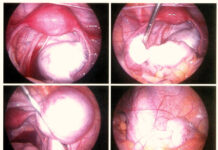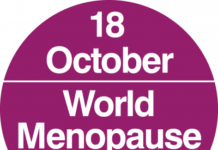A GOLDEN PERIOD FOR WOMEN’S SPORT?
Alternative Period Medals league table ranks track records of countries competing in Paris this summer – and sees sporting behemoths knocked from the podium
Limited edition Period Gold Medals awarded to British athletes who smashed taboos around menstruation in sport, including Heather Watson, Eilish McColgan, Dina Asher-Smith and the Lionesses· Alternative medals table ranking sees nations that usually hold top spots, such as USA and China, languishing at the bottom of top 20 list· Extensive research conducted by intimate well-being brand INTIMINA showed that Switzerland is the most period-friendly country competing, with the UK in a respectable fifth place. · Still a long way to go as not one of the 206 countries heading to Paris next week scored full marks on the five key indicators of positive support for female reproductive health · Areas marked included availability of safe, private toilets; education; birth control and abortion policies; workplace schemes; and access to, and affordability of, menstrual products
This summer’s Games will be the most period friendly ever: with more research and media attention around how menstrual cycles affect performance, injury susceptibility and mindset than ever – with even team kits modified to allow menstruating athletes greater comfort in competition. But for all the headline-grabbing changes, there is still a long way to go before people who menstruate can feel truly supported on their sporting careers, as shown by a new study of reproductive health provisions by women’s health experts INTIMINA, traditions and investment across the 206 countries participating.
The results have been used to produce an alternative Period Medals table – highlighting the track records of countries participating in this summer’s games. In a shock rejig, nations which usually hold top spots, such as USA and China, now languish at the bottom of top 20 list, with just one bronze medal apiece, equal in stature to Italy, Argentina, Hungary and Germany. Instead, the table is topped by Switzerland which – thanks to its cultural attitudes of openness, access to and attitudes around contraception, public health provision, progressive workplace policies and comprehensive, integrated education (amongst both girls and boys) has earned two gold and three silver Period Medals.
The full rankings below:
Menstruation in Sport Heroes
To encourage further open, period-positive discussions among the athletes set to take to this global stage, a limited-edition Gold Period Medal has been produced by INTIMINA to recognise British sports heroes who have spearheaded change and discourse, smashed taboos and inspired a generation of future athletes to stick with their beloved sports. They were presented to:
- Heather Watson – the British tennis player spoke openly about the challenges of performing whilst menstruating, particularly in the traditional white attire of Wimbledon; these rules have since been relaxed and players are now allowed dark undershorts.·
- The Lionesses – the team has spearheaded open conversation about menstruation, pushed their kit supplier to adapt the colour and design of their shorts and have lobbied the sport to urgently address the menstrual cycle’s links to ACL and other injuries ·
- Dina Asher-Smith – smashed a massive taboo by openly connecting a dip in her performance to her period, and driving calls for much more investment from sport science into the issue
- Eilish McColgan – the Scottish athlete is a passionate advocate of breaking period stigma, having suffered with painful periods that severely impacted her ability to compete and mentors young athletes on understanding their bodies without stigma
The six-cm, 18-carat gold-plated medals are engraved with an image featuring the INTIMINA menstrual cup with enamel red droplet in place of a torch and flame. Both the droplet and ribbon are in a Pantone red called Period. The medals were created by jeweller Geoff Murray, who is no stranger to producing jewellery for Olympians, having created bespoke commemorative pieces for swimmer Lizzie Simmons.
Methodology and worst-performing nations
The research analysed performance in five key areas, awarding a score for each across: 1. access to menstrual hygiene products (including cost, taxation, range and availability of a private safe toilet)2. stigma surrounding periods (including cultural attitudes and representation in the media)3. birth control and abortion access (including legislation, ease of access to birth control and cultural attitudes)4. menstruation in the workplace policies – including sporting professions (such as sick leave)5. education around menstruation (including access to and consistency of resources and education policies) At the bottom of the list was Yemen; with the world’s most restrictive abortion laws, menstrual care product access severely limited and education around menstruation inadequate and often absent. It was closely followed by Somalia, where 60% of the population has no access to adequate sanitation facilities and few NGO-led initiatives mean extremely limited access to products. Women in most of the countries in the bottom 10 are forced to use alternatives such as leaves or cloths, and a lack of consistent education means girls in rural areas feel stigmatised.
Dr Susanna Unsworth, gynaecology expert at INTIMINA, commented, “Although there has been a refreshing investment into understanding how menstrual cycles affect athletes, the fact remains there is an urgent need for change around the world. Nearly half (42%) of female athletes say their periods were a factor in deciding to drop out of sports altogether*, and furthermore, UNESCO figures have shown that 335 million girls attend schools with inadequate water, sanitation and hygiene facilities: hindering their educations and preventing them from achieving their true potential in life, not just sport. Even here in the UK, one in 10 girls has been unable to afford menstruation care products – in the US it is one in five***. “We should continue to honour and support every athlete who shows the courage to hold media, sporting institutions and indeed world governments to account on female reproductive health – for the good of not just their sport but people who menstruate across the globe.”
To learn more about women’s intimate health, visit www.intimina.com

| [donate]
| Help keep news FREE for our readersSupporting your local community newspaper/online news outlet is crucial now more than ever. If you believe in independent journalism,then consider making a valuable contribution by making a one-time or monthly donation. We operate in rural areas where providing unbiased news can be challenging. |



















